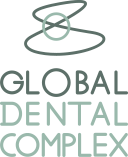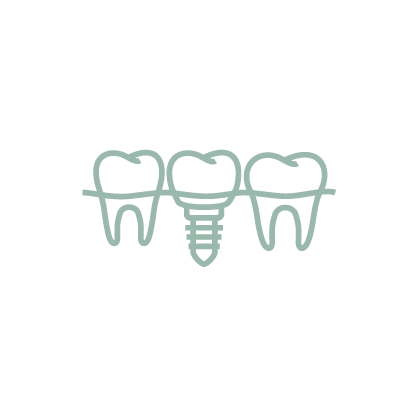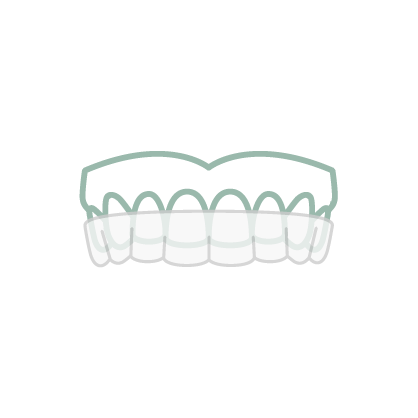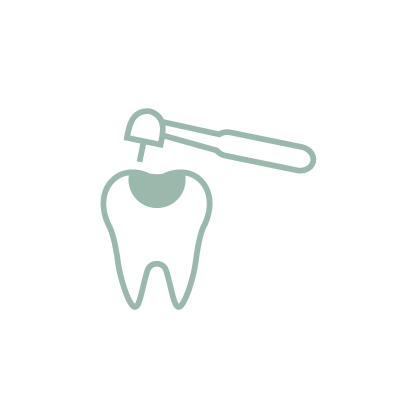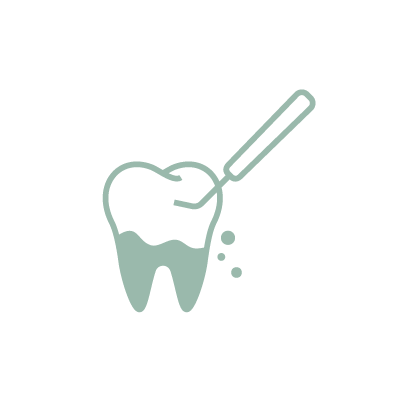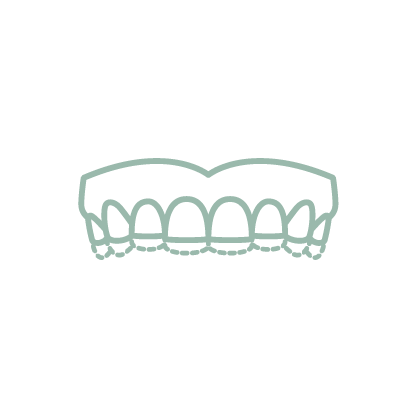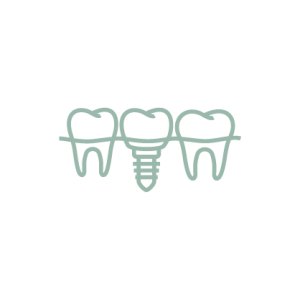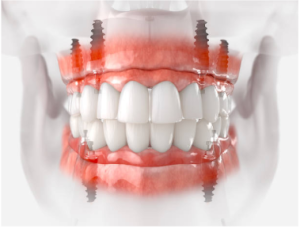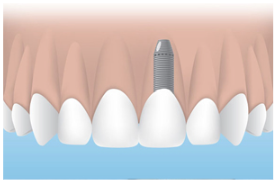Losing all your teeth can dramatically impact your quality of life, affecting everything from eating and speaking to your confidence when smiling. Full mouth dental implants have emerged as the most effective solution, offering results that closely mimic natural teeth in both function and appearance.
What Are Full Mouth Dental Implants?
Full mouth dental implants, also known as complete mouth rehabilitation with implants, represent a revolutionary approach to replacing all missing teeth. This treatment involves strategically placing multiple titanium implant posts into the jawbone to support a complete set of fixed prosthetic teeth.
Unlike traditional dentures that sit on the gums, dental implants fuse with the jawbone through a process called osseointegration. This creates a stable foundation that allows patients to eat, speak, and smile with confidence, just like they would with natural teeth.
The procedure offers several distinct advantages over conventional tooth replacement options:
- Permanent stability – no slipping or sliding during eating or speaking
- Bone preservation – implants stimulate jawbone growth, preventing facial collapse
- Natural function – ability to eat all types of food without restrictions
- Aesthetic appeal – looks and feels like natural teeth
- Long-term durability – can last decades with proper care
All-on-4 Technique: Same-Day Full Mouth Transformation
The All-on-4 dental implant technique represents a breakthrough in implant dentistry, allowing patients to receive a complete set of fixed teeth in just one day. This innovative approach is ideal for patients who need all their remaining teeth extracted due to decay, gum disease, or those who want to replace ill-fitting dentures.
All-on-4 Treatment Process
Initial Consultation and Assessment The journey begins with a comprehensive examination where your dental surgeon evaluates your oral health and bone density. Digital X-rays and 3D CT scans help determine the optimal implant placement. For the lower jaw, typically 4 implants are sufficient, while the upper jaw may require 6 implants due to softer bone density.
Pre-Surgical Preparation Before the surgery day, your dental team creates temporary prosthetic teeth using advanced digital impressions or traditional molds. This preparation ensures you’ll never leave the office without teeth.
Surgery Day Procedure On the treatment day, any remaining damaged teeth are extracted, and the titanium implants are precisely placed into predetermined positions in the jawbone. If necessary, bone grafting procedures are performed simultaneously. The temporary fixed prosthetic teeth are then attached to the implants, giving you immediate function and aesthetics.
Post-Surgical Care and Final Restoration Suture removal typically occurs after two weeks, followed by a 2-4 month healing period. During this time, the implants integrate with the bone. Once healing is complete, your permanent custom-designed prosthetic teeth are fabricated and attached.
Full Mouth Dental Implants Cost Factors
The cost of full mouth dental implants varies significantly based on several important factors that patients should carefully consider:
1. Clinic Standards and Location
Premium dental centers with internationally accredited operating rooms, advanced sterilization systems, and state-of-the-art facilities typically charge higher fees. However, this investment in quality infrastructure significantly reduces infection risks and improves treatment outcomes.
2. Implant Type and Quality
Dental implants come in various brands and quality levels. European-manufactured implants generally cost more than Asian alternatives but often provide superior warranties and proven long-term success rates. Premium implant systems like Astra Tech, Straumann, or Hiossen command higher prices due to their extensive research and development.
3. Prosthetic Materials
The final teeth can be crafted from different materials, each with distinct advantages:
- Zirconia crowns – highly durable and natural-looking
- Porcelain-fused-to-metal – strong and cost-effective
- All-ceramic restorations – excellent aesthetics for front teeth
- Acrylic resin – more affordable but less durable option
4. Case Complexity
Patients requiring additional procedures such as bone grafting, sinus lifts, or treatment of gum disease will incur additional costs. The complexity of your individual case significantly influences the final treatment price.
5. Surgeon Experience and Expertise
Board-certified oral implantologists with specialized implant training typically charge premium fees. However, their expertise often translates to higher success rates, fewer complications, and superior aesthetic outcomes.
Current Full Mouth Dental Implants Pricing
Full mouth dental implant costs in Thailand vary considerably based on the factors mentioned above. Here’s a general pricing structure:
All-on-4 Treatment (Upper OR Lower Jaw)
- Basic Level: Starting from 300,000+ THB
- Mid-Range: Varies based on individual case requirements
- Premium Level: Customized pricing based on complexity and materials
All-on-6 or All-on-8 Treatment
These options cost approximately 20-30% more than All-on-4 due to the additional implants required. The extra implants provide increased stability and load distribution, making them ideal for patients with higher chewing forces or specific anatomical considerations.
Complete Upper and Lower Jaw Treatment
For patients requiring full mouth restoration of both jaws, total investment typically starts from 600,000 THB and increases based on complexity, materials selected, and any additional procedures required.
Benefits of Full Mouth Dental Implants
Superior Stability and Strength
Dental implants integrate directly with your jawbone through osseointegration, creating a bond stronger than natural tooth roots. This integration provides unparalleled stability – your new teeth won’t shift, click, or slip during eating or speaking.
Bone Preservation
One of the most significant advantages of dental implants is their ability to preserve jawbone structure. When teeth are lost, the underlying bone begins to deteriorate. Implants provide the necessary stimulation to maintain bone density and prevent the sunken facial appearance associated with tooth loss.
Enhanced Quality of Life
Patients with full mouth implants report dramatic improvements in their daily lives:
- Unrestricted diet – enjoy steaks, corn on the cob, and crunchy foods again
- Clear speech – no more mumbling or whistling sounds
- Social confidence – smile and laugh without worry
- Improved nutrition – proper chewing leads to better digestion
Long-Term Durability
With proper care, dental implants can last several decades, making them an excellent long-term investment. Unlike dentures that require replacement every 5-7 years, quality implants often last 25-30 years or more.
Anterior Dental Implants: Special Considerations
Anterior dental implant placement in the front teeth region requires exceptional skill and artistry. The aesthetic zone demands perfect harmony between the implant, crown, and surrounding gum tissue to achieve natural-looking results.
Front tooth implant costs typically start around 50,000 THB per tooth, depending on case complexity and materials used. The treatment requires specialized techniques to ensure optimal gum contouring and natural emergence profiles that blend seamlessly with your smile.
Pre-Treatment Preparation
General Health Assessment
Successful implant treatment requires good overall health. Patients should have well-controlled diabetes, maintain good cardiovascular health, and stop smoking at least 2 weeks before surgery. Smoking significantly increases the risk of implant failure and complications.
Oral Health Evaluation
Your dental team will thoroughly assess your gum health, remaining teeth, and jawbone condition. Any existing gum disease must be treated before implant placement to ensure optimal healing and long-term success.
Advanced Imaging and Planning
Modern implant treatment relies heavily on 3D imaging technology. CBCT scans provide detailed views of bone density, nerve locations, and sinus cavities, allowing for precise implant placement and reducing surgical risks.
Post-Treatment Care and Maintenance
Initial Recovery Period (First 2 Weeks)
- Stick to soft foods and avoid hard, crunchy, or extremely hot foods
- Use prescribed antimicrobial rinses instead of aggressive brushing
- Avoid strenuous activities and heavy lifting
- Take prescribed medications as directed
- Apply ice packs to reduce swelling
Long-Term Maintenance
Successful implant maintenance requires:
- Daily oral hygiene – brush and floss regularly with implant-specific tools
- Regular dental visits – professional cleanings every 6 months
- Protective measures – avoid chewing ice, opening packages with teeth
- Lifestyle modifications – maintain non-smoking status
Comparing Treatment Options
Dental Implants vs. Removable Dentures
Traditional dentures offer a lower initial investment but come with significant drawbacks:
- Instability – frequent slipping and movement during eating
- Bone loss – no stimulation leads to continued jawbone deterioration
- Dietary restrictions – many foods become difficult or impossible to eat
- Maintenance – daily removal, cleaning, and adhesive application
Full mouth implants eliminate these issues by providing permanent, stable teeth that function like natural ones.
Dental Implants vs. Dental Bridges
Conventional bridges require grinding down healthy adjacent teeth to serve as support pillars. This irreversible procedure weakens healthy teeth and may require replacement every 10-15 years. Dental implants preserve surrounding natural teeth while providing superior longevity.
Choosing the Right Dental Center
Selecting an appropriate facility for full mouth implant treatment is crucial for success. Consider these essential factors:
Surgeon Qualifications and Experience
Your implant surgeon should possess:
- Board certification in implant dentistry
- Specialized implant training from recognized institutions
- Extensive experience with complex full mouth cases
- Continuing education in latest implant techniques
Technology and Equipment
State-of-the-art facilities offer significant advantages:
- 3D imaging capabilities for precise treatment planning
- Computer-guided surgery for accurate implant placement
- In-house laboratory for custom prosthetic fabrication
- Digital workflow from planning to final restoration
Surgical Suite Standards
Procedures should be performed in accredited surgical facilities with:
- Hospital-grade sterilization protocols
- Dedicated implant surgery rooms separate from general dentistry
- Emergency protocols and equipment readily available
- Certified surgical staff with implant experience
Potential Risks and Complications
Common Side Effects
Most patients experience manageable side effects including:
- Post-surgical discomfort lasting 3-7 days
- Mild swelling that peaks at 48-72 hours
- Minor bleeding during the first 24 hours
- Temporary numbness in the treatment area
Rare Complications
While uncommon, serious complications can include:
- Infection if post-operative care instructions aren’t followed
- Implant failure to integrate (success rates are 95-98%)
- Nerve damage when proper planning protocols aren’t followed
- Sinus perforation during upper jaw procedures
Why Choose Full Mouth Dental Implants?
Full mouth dental implants represent a significant investment in your long-term oral health and quality of life. While the initial cost may seem substantial, the long-term value proposition is compelling when compared to alternatives.
Consider these lifetime benefits:
- No replacement needed – quality implants can last decades
- Improved nutrition – unrestricted diet leads to better health
- Enhanced self-esteem – natural-looking smile boosts confidence
- Better oral health – easier cleaning and maintenance than dentures
- Facial support – maintains natural facial structure and appearance
Making Your Decision
Before committing to full mouth implant treatment, invest time in thorough consultation with qualified specialists. Understand the complete treatment timeline, associated costs, expected outcomes, and long-term maintenance requirements.
Research potential dental centers carefully, reviewing their credentials, technology, patient testimonials, and success rates. Don’t hesitate to seek second opinions, especially for complex cases requiring additional procedures.
Quality full mouth implant treatment represents a life-changing investment. Choose experienced professionals who prioritize your safety, comfort, and long-term success over quick profits.
Conclusion
Full mouth dental implants offer the most comprehensive solution for complete tooth loss, providing unmatched stability, function, and aesthetics. While the investment is significant, the long-term benefits in terms of health, comfort, and quality of life make it an excellent choice for qualified candidates.
The All-on-4 technique has revolutionized implant dentistry by making same-day treatment possible, while anterior implant techniques ensure beautiful, natural-looking results in the smile zone.
Take the first step toward reclaiming your smile and quality of life by consulting with experienced implant specialists who can assess your individual needs and develop a personalized treatment plan.
